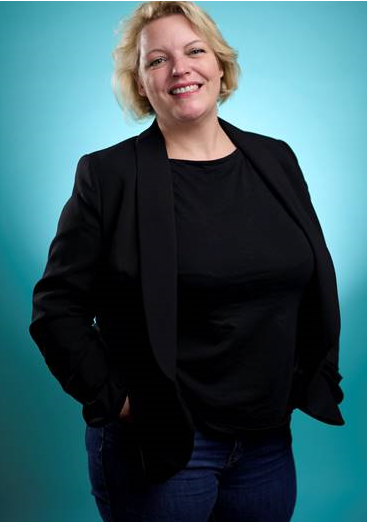The Foundation organized the intervention of two eminent historians last spring, as part of its Culture-Research Breaks at the Red Cross Campus. Joël Glasman, professor at the University of Bayreuth in Germany, came to explain how the humanities could be useful to humanitarian action. Romain Fathi, associate researcher at the Sciences Po History Center in Paris, spoke to us about the beginning of the remarkable expansion of the Red Cross immediately after the First World War. Why is it important to listen to the voices of historians and invest in history if we want to build an organization for the future?

Virginie Alauzet : Historians’ work is essential. We often perceive history as a field focused on the past. On the contrary, historians’ research and insights significantly contribute to understanding the present and shaping the future. Their work provides a critical perspective, grounded in objective data and analysis, that helps us define relevant goals, challenge ourselves, make decisions, and act with coherence. Both collectively and individually, our history and experiences shape us. We are actors in our past, just as we are architects of our future. Yes, it is crucial to listen to historians; their perspectives form a foundation that enriches our reflections and actions, helping us grasp the complexity of the world more finely. They assist in “thinking through uncertainty,” as Joël Glasman puts it, and enable forward-thinking.
Finally, history is a treasure trove of creativity, courage (particularly among female humanitarians), and innovation. It serves as a genuine source of inspiration for developing original solutions to contemporary challenges.
This year marks the 160th anniversary of the French Red Cross. How does such a celebration allow us to revisit today’s most pressing challenges,? How does it encourage us to question the present ?
VA: Such an anniversary is more than a celebration; it is an opportunity to re-anchor ourselves in our core values, principles, and shared heritage. Our history defines our identity and makes us unique. It is also a chance for perspective and introspection. This year, as emphasized by President Philippe Da Costa in his moral report to our General Assembly, we undertook such an exercise. Ten years ago, during our 150th anniversary, we focused on the “beautiful story of the Red Cross.” That perspective remains relevant, as highlighting commitment through a positive lens is vital. However, a decade later, we’ve gone further, prompted by specific events and contexts. The rise of extremism, challenges to International Humanitarian Law (IHL) and the principle of neutrality, our stances, and the development of our institutions—all of these prompted us to question our history. This reflection didn’t start this year—it wasn’t absent in 2014—but the progress over the past decade is striking. The evolution is significant and worth observing.
From your perspective, what role do archivists and archives play in today’s society, particularly in the humanitarian sector ?
VA: Archives are indispensable to historians’ work. The role of archivists is to ensure the preservation, accessibility, and usability of archives in the long term, contextualizing them to make them comprehensible. They make research possible. To support this, organizations must invest in and prioritize archives, as it is in their best interest to do so.
An organization that understands and embraces its history knows how to preserve its sources and evidence, adheres to transparency, and fosters trust. It demonstrates stability, experience, and adaptability over time.
Additionally, making accessible and usable archives contributes to democratic systems and the building of a resilient society that can reflect on itself. Archivists are acutely aware of this. For example, the International Council on Archives created a “Human Rights Archives” section in 2003, in partnership with UNESCO, to preserve records documenting human rights violations. Similarly, professional associations continue advocacy efforts in this regard.
From my perspective, humanitarian organizations play a critical role during crises and thus have a responsibility to build both collective and individual memory. The 2011 resolution of the Council of Delegates of the International Red Cross and Red Crescent Movement on preserving members’ cultural heritage aligns with this idea.
The French Red Cross established its archives service in 2001. To ensure lasting preservation and improved accessibility for researchers, we implemented a deposit agreement with the National Archives in 2021, alongside an associated processing program. As you can see, archiving is an ongoing effort that must be approached systematically.
[1] To explore further on : https://www.icrc.org/sites/default/files/external/doc/fr/assets/files/red-cross-crescent-movement/council-delegates-2011/council-delegates-2011-heritage-resolution-report-fre.pdf





